The science to advance our understanding of the aging process—and to potentially slow it down—has made important strides. One of the leading scientists responsible for this work is Professor Tony Wyss-Coray, whose work has particularly focused on brain aging but has implications for all organs. I believe his December 2023 Nature paper on blood proteins that can track aging for 11 of our organs is one of the most important aging reports yet.
Here is the audio and transcript of our conversation, recorded 20 December 2023, with a few relevant external links.
This is the last Ground Truths post for 2023 and I hope you’ll find it informative. I look forward to sharing many more exciting, cutting-edge biomedical advances with you in 2024!
00:10.38
Eric Topol
Hello this is Eric Topol and for this edition of Ground Truths. I'm so delighted to have with me Professor Tony Wyss-Coray of Stanford, a Distinguished Professor at Stanford and who directs the Knight Initiative for Brain Resilience. So welcome Tony.
00:30.19
Tony Wyss-Coray
Thank you, thank you for having me, Eric.
00:32.84
Eric Topol
Well, I've been following your career and your work for decades I have to say and what you just published a couple weeks ago in Nature. The cover paper about internal organ clocks. It blew me away. I mean it's a built on a foundation of extraordinary work. I thought we could start with that because to me that's really a breakthrough in that when we think of aging and how to gauge a person aging with things like the Horvath clock of methylation markers or telomeres or —not at all specific to any part of the body, just overall, l but you published an extraordinary work about plasma proteins for 11 organs that predicted the outcomes things like heart failure and Alzheimer's so maybe you could tell us about this. Seems to be a big deal to me.
01:28.41
Tony Wyss-Coray
Thank you so much I'm honored. Really, you know I think if you work on this stuff, especially for several years it feels sort of obvious to do it? But I think you know it is in a way. It is. Pretty simple. So what we argued is that the thousands of proteins that you know are present in our blood. They must originate from somewhere now a lot of proteins are you know, produced by cells throughout the body. But some proteins are very specifically produced. For example, only in the brain or only in the liver or only in the heart because they have specialized functions and we have you know being taking advantage of that in clinical medicine where you measure. Often you know one of these proteins to sort of diagnose pathology in a tissue, but we took this It's just a level further and said, well, let's just find out of thousands of proteins that we can measure assign them to specific organs and tissues. And then see whether they change with age and many of them turn out to change. We found you know about 1500 proteins or so in the study that we did although that number can grow dramatically if we you know keep.
03:01.11
Tony Wyss-Coray
Improving our technologies or techniques to measure them and many of them come from the brain or from other tissues and because they change with age. They tell us something about the aging of that organ. And as others have shown in the field including Steve Horvath is that that prediction of the age if it doesn't really match exactly your actual age contains information about the state the physiological state or the risk to develop. Organ-specific disease.
03:37.75
Eric Topol
Right. And you found that about 1 in 5 people had evidence of accelerated aging of 1 organ which of course is really starting to nail down ability to detect aging you know to localize it and um. What strikes me Tony is that now because we're seeing at the cusp of advancing in the science of aging a field that you have done so much to propel forward and one of the issues has been well, how are we going to prove it. We can't wait for 20 years to show that. Whatever intervention led to promotion of healthy aging. But when you have a marker like this of organ specificity, it seems like the chances of being able to show that intervention makes a difference is enhanced would you say so?
04:29.28
Tony Wyss-Coray
Yeah, absolutely I think that's one of the most exciting aspects of this that we can now start looking at interventions whether they are you know a specific intervention that tries to target the aging process, or you know just that. Let's say a cholesterol lowering drug or blood pressure lowering drug does that have a beneficial effect on the heart. For example, on the kidney or you can also start thinking of lifestyle interventions where they actually have an effect right? If you started exercising you collect your blood before and then a year after you have an exercise regimen does that actually change the age that we can measure with these different clocks.
05:22.55
Eric Topol
Right? Well I mean it's really a striking advance and by a marker of aging so that gets me to your other work. You've done well over 10 years which is that you could identify that given young blood. First of course in mice and then later verified in people could improve cognitive function in older whether it's experimental models or in people. So what are your thoughts about that is that if that's something you've been ruminating on for many years and I’m sure there are places around the world that are trying to do this sort of thing. What do you think of that potential?
06:11.40
Tony Wyss-Coray
Yeah, so there really this recent observation or study really came out of you know that finding that young blood can change the age of different organs and you know we. We were not the first to show this. We showed it for the brain but Tom Rando who studied muscle stem cell aging showed this you know a few years earlier in the muscle and we worked with Tom to explore this for the brain, but it shows sort of that this you know the composition of the blood. It is really not just reflecting the age of organs and tissues. But it actually also affects them. It directs them in a way and so you can speculate that you know if you had an organ that shows accelerated aging. Because some of the factors end up in the blood. They might actually induce aging in other tissues and so promote the aging process and people in the field have also shown that this is true for specific cells. We call them senescence cells. So these are a specific type of cell that seem to somehow stop dividing and assume the state that releases inflammatory factors these cells too. They seem to almost infect the neighborhood where they live in with an age promoting sort of.
07:41.95
Tony Wyss-Coray
The secretome , as we call it, so they release factors that seem to promote aging locally but potentially across the organism and interfering in that could potentially have rejuvenating effects and so that brings us back to this observation that.
08:01.23
Tony Wyss-Coray
Young blood could potentially rejuvenate organs We know old blood can accelerate it at least in mice. So could we neutralize the age promoting factors in people and could we deliver sort of the rejuvenating factors. Now what's been frustrating for me is that it has been incredibly challenging to identify the key factors.
08:33.30
Tony Wyss-Coray
I think we became to realize as a field that there is not 1 factor. There's not 1 magic factor that will keep us young or keep our organs young but rather different cells and different organs in our body seem to respond in different ways actually to this young blood. Can show this with molecular tools. We can show that every cell actually responds. So if you take a mouse an old mouse and you give it young blood every cell in that mouse shows a transcription of the response to the young blood.
09:10.80
Tony Wyss-Coray
Some of them may regenerate mitochondria and others activate other pathways. We see that stem cells respond particularly well the stem cells of the Immune system hematopoietic stem cells um while other cells show less of a response. And that to me suggests that they respond to different factors in the young blood and that you know they have very specific um receptors Probably that recognize some of these beneficial factors and then respond in a specific way. So that’s what we need to.
09:33.16
Eric Topol
Right.
09:48.63
Tony Wyss-Coray
Figure out I think as a field to translate this really to the clinic is what are the key factors and will it be possible to make a cocktail that sort of mimics Nature's you know elixir
10:06.13
Tony Wyss-Coray
I Said this before it's almost like the fountain of youth is within us, but it just dries out as we get older and if we could figure out what are the key factors that that make up this fountain. We could potentially you know either, as a treatment, deliver it again or reactivate that found and so that the body produces these factors again.
10:34.73
Eric Topol
Well, you know that's something that years ago I was very skeptical about and because of your work and others in the field. I've come a long way thinking that we're on the cusp of really identifying ways to truly promote healthy aging. And so this is a really you know extraordinary time in our lives I wonder you of course mentioned 2 critical paths that have been identified the senescent cells—removing them— or the infusion of young plasma. Would you say it's too simplistic to reduce this to decreasing inflammation or is that really the theme here, or is it much more involved than that.
11:28.48
Tony Wyss-Coray
I think inflammation has a big part in that but you know inflammation is such a broad term and such an ill-defined term that um yeah I can say yes to your question.
11:44.45
Tony Wyss-Coray
And I'm probably not going to be wrong. Um, but if we really want to know which molecular pathways in the inflammatory cascade are key to this detrimental process that seems to accelerate aging. Um, I think we have to work a bit harder and really so define what we're saying you can't just have thousands of proteins or genes that have something to do with immune and inflammatory process. It's called inflammation.
12:21.25
Tony Wyss-Coray
Then? yes, everything is inflammation. But I think we have to be more precise. Otherwise, you can't really target it. Having said that you know if we use sort of the conventional tools that biologists use these pathway analyses if we give young plasma. To an aged organism then the top pathway or one of the top pathways in almost every cell is inflammation, suggesting that we reduce the inflammatory process. But again, it's in a very broad sense and I want to know more? what? what. What we're finding? In fact, you know 1 of our first observations when Saul Villeda was in my lab and the first parabiosis study to look at factors that might promote brain aging. Yeah, he identified beta-two-microglobulin and eotaxin is a chemokine that is involved in a lot of you know, sort of inflammatory responses and has actually recently more recently again been implicated by Michelle Monje here at Stanford. To be a mediator of you know the chemobrain as people call it at least in animal models and we showed that it's part of the age plasma that causes sort of, an acute impairment of cognitive function in mice.
13:46.90
Tony Wyss-Coray
So that would be an example of a bad factor and that is part of an inflammatory cascade but we want to know what exactly is it. Um, we tried a small molecule that targets the receptor One of the main receptors for this chemokine. But unfortunately that compound had some side effects on the liver and we've never got to really test. The question is this you know potentially Important. It's one of the challenges you know for drug development.
14:20.82
Tony Wyss-Coray
You often don't get to test your questions because the drug has side effects that don't allow you to do that.
14:26.14
Eric Topol
Well, speaking of drugs out there this past week there was a very provocative paper from Daniel Drucker University of Toronto on the GLP-1 effects on brain inflammation and interestingly with. You may have seen it but with mice that were either knocked out of GLP-1 for their blood cells or their brain. It was clear that inflammation reduction with these drugs and they tested several different GLP-1s, all worked through the brain. Which is really fascinating and I wonder of course these drugs are now you know they craze for anti-obesity. But do you see something like that this this peptide agonist as a potential way to achieve some of the effects that you've been. Working on for a long time.
15:25.40
Tony Wyss-Coray
Yeah I think this is extremely fascinating. Um I mean these drugs. Um, we don't understand them exactly what they're doing as you know for many drugs.
15:31.24
Eric Topol
Right? right? right.
15:37.13
Tony Wyss-Coray
But it's really amazing the effects that you see and you know I'm very hopeful. There's a large phase 3 trial in Alzheimer's disease ongoing. The phase 2 looked very positive very promising so you know it. It is really possible that.
15:49.65
Eric Topol
Um, yeah.
15:56.49
Tony Wyss-Coray
Um, that there that there are key pathways that are responsible for you know cognitive decline and a cognitive impairment and inflammation is ah is a key aspect of that again inflammation in a broad term. We need to define it but it could be that it goes through. You know, um through these glib receptors and um and that ah might be ah, some regulator of a broader process but you know we see for example with aging just with normal aging you get um activation of.
16:35.96
Tony Wyss-Coray
Inflammatory pathways in the brain vasculature and young plasma reduces these changes acutely and maybe this is you know all part just dampening that inflammation gives you some additional brain power, if you will, for lack of a better word. That much of you know at least the early stages of cognitive impairment that lead to Alzheimer's disease.
17:12.10
Tony Wyss-Coray
Relatively transient and are more like a fog like we say you know the chemofog the chemobrain or brain fog but that you know with Covid that you also commented very prominently that. That suggests that it's not a structural damage early on but that that it might be some soluble factors that would go a long way if you could just suppress them.
17:35.83
Eric Topol
Right? right? Well, It's really fascinating to see and I'm glad you mentioned the Phase 3 trial in Alzheimer's for this one class because I think that's expected in 2025 to read out and that'll be really important. I Wanted to ask you because now there's many shots on goal to change the natural arc of aging at all these companies like Altos and Unity and Calico and I mean there's so many of them I can't even keep track. Um, they're all taking different strategies. I Have to think because they need to have their own intellectual property. What do you see as the alluring ways that we're going to be able to modulate this process.
18:25.65
Tony Wyss-Coray
That's a very tough question. I think it's hard to predict I would say you know like always in in biology. First of all, as you know what we discussed earlier. It could be that. Ah, drug that tries to test the pathway like you know one that Unity tried has side effects and you know you can't actually test your hypothesis. But I think one of the key sort of aspects of the aging process is really that it's both global across the organism but it's also very localized and so it's possible that targeting the aging process will first show benefits. In individual tissues if we target you know the aging process in 1 particular tissue that might show the first benefits. But then again it could be that if there is sort of a key inflammatory driver that to some extent responsible for overall aging of the organism and you manage to target that and slow it or block it. You may have an organism-wide effect. But I think we have to be we have to be realistic that.
19:51.88
Eric Topol
Um, yeah.
19:56.99
Tony Wyss-Coray
You know this is going to be an incremental process I think.
20:00.92
Eric Topol
So is there anything that you've seen that has grabbed you as having tremendous potential that is new or is it really you know the things that I've already been percolating that that we know about.
20:17.41
Tony Wyss-Coray
Yeah I mean just to the GLP-1 study I've been actually ah a bit involved in that. Um I find this really fascinating. Um, yeah.
20:23.98
Eric Topol
Um, yeah, yeah, well that I spoke.
20:29.81
Tony Wyss-Coray
I Mean not in that study that got published but in sort of more on the cognitive side.
20:33.78
Eric Topol
Where I right? I Thought that was especially welcome news because the drugs we have now for Alzheimer's seem to have you know some pretty serious side effects and somewhat low efficacy relative to the to the risk rssessment. So, this would be a drug that we know now as people have taken for years that I do want to get back to you with you on the durability. So if you give young blood to an old person who has let's say mild Cognitive impairment. Will you see a durable impact or is it just a very short lived one.
21:13.76
Tony Wyss-Coray
I think some of the effects will be durable and I'm saying that because of an experiment that James White and Vadim Gladyshev did they use this parabiosis model where you suture a young and an old mouse together.
21:32.10
Tony Wyss-Coray
Left these mice together for two months I mean or three months and then they separated them and let them live and looked at how long does an old mouse live that was paired with a young mouse for a few months. Compared to an old mouse that was paired with another old mouse and they saw that there is clear extension of lifespan if the mouse was exposed to young blood. Now this is in the context of you know, 2 major surgeries first suturing them together and then taking them apart. But I always note that when I present this experiment but I also say at the same time that this is the problem that a lot of older people have right when they have a surgery they don't recover from it as well. And it's often the beginning of cognitive decline if you ask families. You know when did it start? Oh they had heart surgery or they fell and had you know had a hip surgery or something like that or a major infection. That is often the trigger where it's almost like you know the organism is hanging in there and it's still functioning and then there's an injury and it collapses. Um and so you know what's remarkable with the rejuvenating intervention with.
23:02.11
Tony Wyss-Coray
With parabiosis is that it seems to overcome this to a very significant event and they also showed you know with many other tools including with the Horvath clock that tissues are actually getting younger through this process.
23:20.51
Tony Wyss-Coray
We have also found that you know stem cells are rejuvenated for a long period of time if you treat with young plasma infusions in mice and so I'm hopeful that some of the effects are going to be long-lasting. But. You know, practically you would probably still treat people on a regular basis like we do with all drugs. But maybe you would do an infusion every 3 months or every six months and you know we're still trying with um.
23:52.20
Eric Topol
Pray.
23:57.00
Tony Wyss-Coray
A company that I so that that I started Alkahest to you know, convince people to do a Phase 3clinical trial and see how far we can push this.
24:09.38
Eric Topol
Well, it'd be really interesting to see you get that done then going back to the senescent cells which is another leading prospect. It seems to be more difficult to get these cells out of the body. We know they're bad actors but it isn't like we can you know. Ah, very selectively remove them. But what are your thoughts about that approach.
24:35.76
Tony Wyss-Coray
I mean I'm always really puzzled and amazed at the effects that people show with you know, senescence cell removal in in animal models.
24:46.20
Eric Topol
Right.
24:49.57
Tony Wyss-Coray
There is something really almost magical there that you remove these few cells and you know the body is doing much better. Um, So I think you know we should. We should keep trying very hard to translate this to humans. But it's possible that again there are they're very likely different types of senescence cells and different tissues I mean in the brain you know there are no rapidly dividing cells. So. It's not the classic. You know arrest of cell cycle.
25:24.11
Tony Wyss-Coray
But it's probably more like an astrocyte type of cell that might mimic a senescent state. But I think it will be. It will be. You know very much organ specific. And may require very specific interactions or drug targets.
25:44.83
Eric Topol
Ah, right? right? Well then gets us back to kind of where we started before you're what I consider a landmark paper. Um, it would be difficult. To be able to go to a regulatory body like the FDA and say we show that this is affecting the aging process and we show in you know 3 organs 5 organs whatever the 11 organs you could track we are reversing the aging process. I mean you have that now as an extraordinary finding. Do you think that will help accelerate the field by having not having to have a whole-body aging story with an epigenetic clock but rather you know much more pinpointing. Organs that can be helped that they can be promoting healthy aging. It seems to me this is where not only advancing the theories of how to do it but the proof that you have done it. It seems like this is what. You know why I consider such an extraordinary finding.
26:59.90
Tony Wyss-Coray
I totally agree with you but I'm a bit biased I think you know this is what we need I mean this was always a criticism to me and you know we're very good friends with Steve Horvath and
Morgan Levine who you know came up with these remarkable aging clocks. But my my question was always how can you get information about the whole body aging. By looking at changes in blood cells or cheek cells. Um, that cannot contain information about how your pancreas ages or your heart ages at the high resolution. It will correlate. Admittedly, but it will not give you tissue-specific information most likely. So you know going more directly at molecules that are derived from cells across the organism is of course going to be much more informative. Um, we've just started to do this. You know it's a concept. Um, we are super excited about you know, looking now at large datasets like the UK biobank. We just get access. Through a collaboration to 50,000 individuals where we have 1500 protein measurements with a different proteomic platform and it seems most of the findings replicate.
28:47.45
Tony Wyss-Coray
You know, very strong risk for people who have older brains to develop the men in the future. Um, and you know we still see these extreme organ ages that I find very puzzling.
29:00.89
Eric Topol
Yeah, it's really striking and the fact that you could replicate the best biomarker for the brain.—Plasma pTau-181— through these proteins is exceptional. How much did machine learning AI help you? And deciphering this large data set of proteins was it really critical or was it just a small part.
29:26.23
Tony Wyss-Coray
Ah, oh it's certainly I mean this is I think you know the terminology are not so clear and I have to admit you know I'm not a computer scientist by any stretch. But I think this is classic machine learning using statistical elements of learning as you know. We use linear modeling. Um, but I think it will become more sophisticated. Um, and I think ai will help us to bring this. To a much higher level by but by basically learning from the relationship between proteins directly and then compare that in healthy people versus control similar to what Christina Theodoris recently did for gene expression. Ah, the single cell level. Um I think we will see that and we're trying this and I'm sure others are trying this too at the protein level but the current the current study uses really more traditional machine learning models. Um that you know are sophisticated but it's not.
30:42.33
Tony Wyss-Coray
You know I'm not sure we call this artificial intelligence.
30:44.85
Eric Topol
Sure. Well I think as you say it can build on that and you know putting in more models to more data sets and where the future goes. You'll get even more precision output as you know know, Tony.
30:51.58
Tony Wyss-Coray
Um, yeah. Absolutely.
31:02.44
Eric Topol
This This has been a real joy. I have to say congratulations to you and your team for such exceptional work. This has been a multi-decade run, you know one layer of after another of building on the science of aging particularly the brain aging I've learned so much from you and your team.
31:07.28
Tony Wyss-Coray
Thank you.
31:21.81
Eric Topol
I have to say the paper you just published you and your group got me excited I mean I really thought of all the things I’ve seen on aging this was the one that really opens it up for you know all the other possible ways to claim you're making a difference. You've got a metric that's emerging and so kudos to you and I know this is got to be of course that you probably just say oh, it's just 1 more thing we've been doing but I am so duly impressed.
31:52.30
Tony Wyss-Coray
Thank you so much. Thank you for the nice word means a lot.
31:58.94
Eric Topol
Well keep up the great stuff because we're all, we're all depending on you so that we can have a better arc of our healthy aging process and we'll keep in touch. If you can just stay on it!
32:10.30
Tony Wyss-Coray
Thank you! Thanks so much.
Thank you for listening, reading, subscribing to and sharing Ground Truths!
Happy new year,
Eric

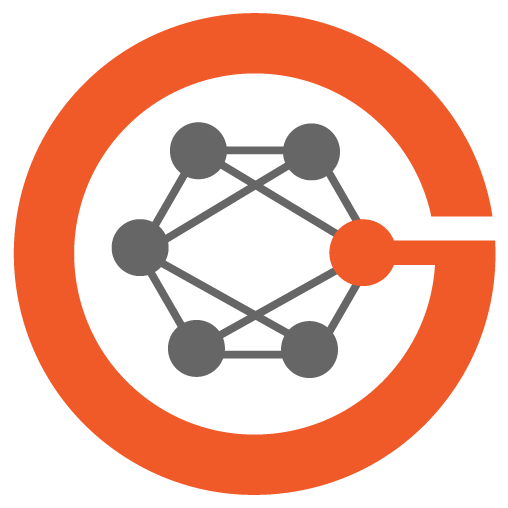
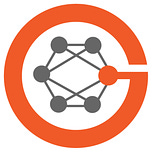

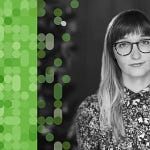
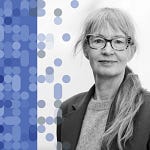
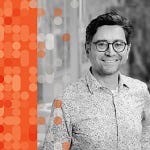

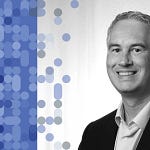
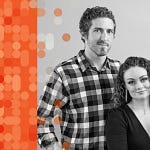

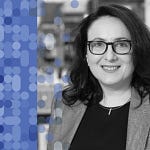
Share this post